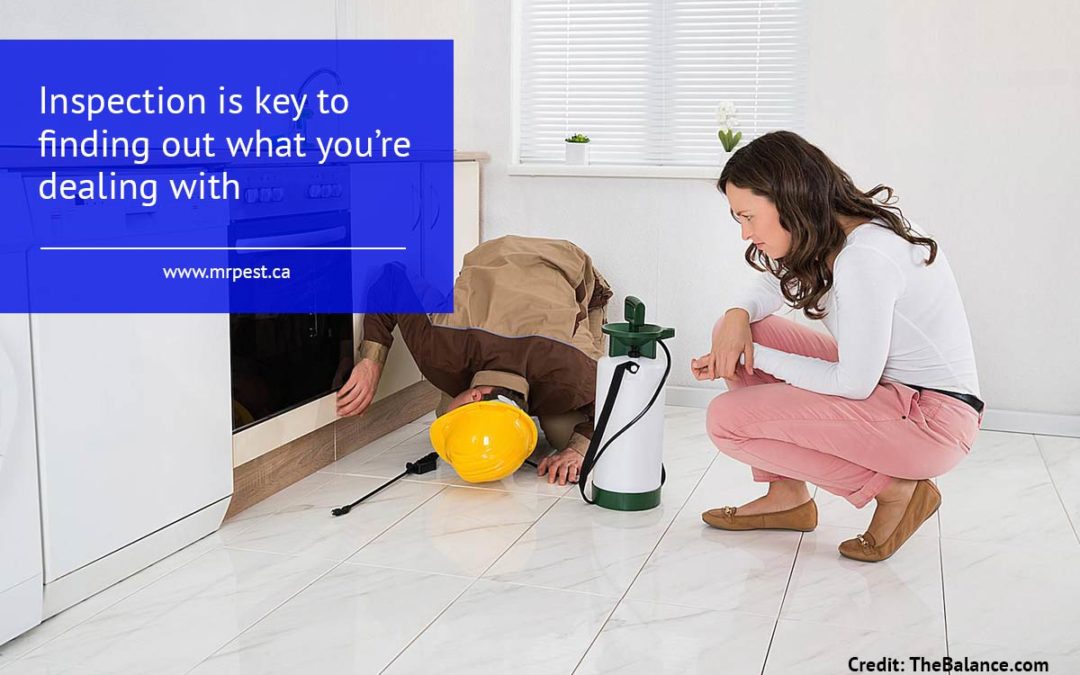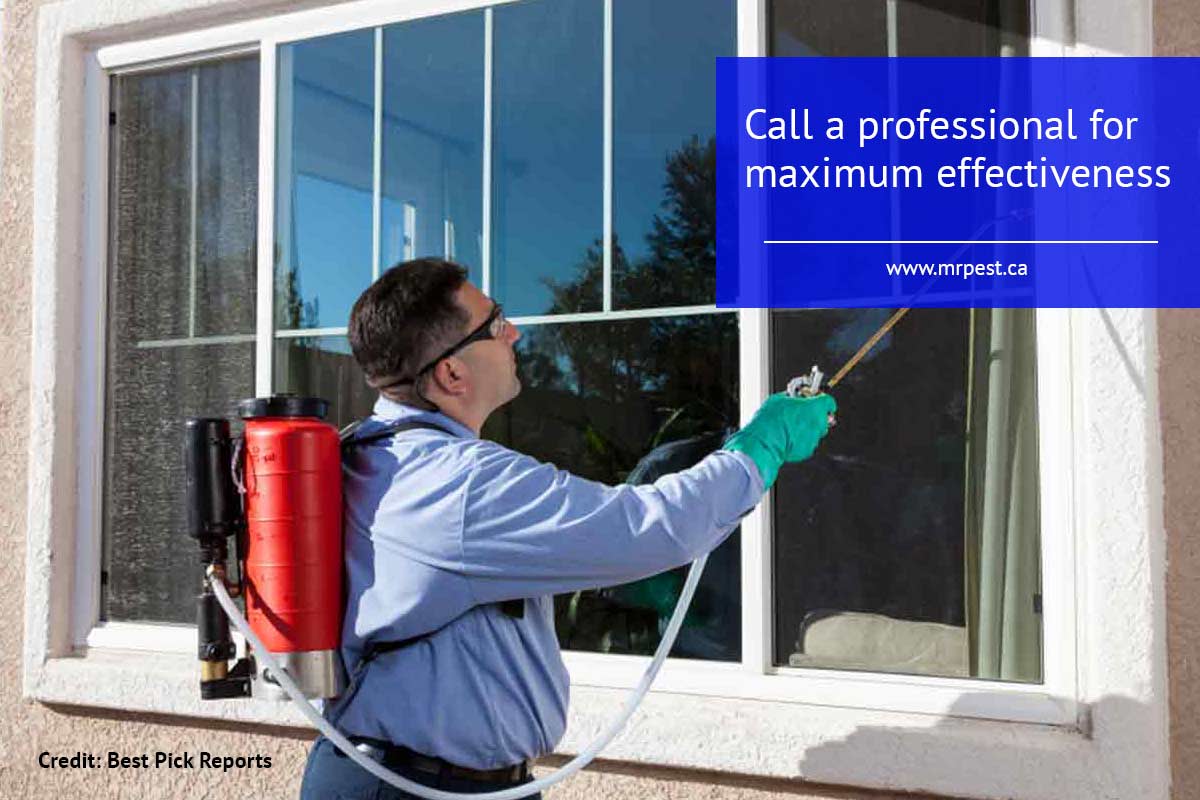Many homeowners elect to do pest control on their own, for whatever reason. It can be tempting to try do-it-yourself solutions to your pest problems, but professionals will tell you that’s an unwise idea. Fixing the problem on your own might seem like the natural thing to do. In case of problems with mice and rat control, for example, you can lay out traps or spray the place yourself. Why else would is it so easy to find DIY pest control products at the store?
Homeowners might think that there are some pros and cons that go with DIY pest control. However, the plain and simple truth is that DIY pest control doesn’t work, at least if you want the problem gone for good. It might seem easier or more cost-effective to handle pests yourself, but DIY solutions come with their own issues. It’s usually better to trust the pros on this one.
Here are some typical DIY pest control problems most homeowners encounter to show you why it’s not the best idea.
- Skipping the inspection – The first thing the pros do when you call for help is perform an inspection. In many cases, DIY pest control consists of reacting after you’ve found pests (like a mouse in the kitchen). When that happens, homeowners usually buy some pesticide or set traps and assume the job is done. However, if you go that way, it’s likely the attempt may not work for several reasons (e.g. you bought agents that weren’t strong enough to do the job). Failing to perform a proper inspection also raises the possibility of missing other infestations. For example, you noticed mice in the kitchen, but you may have missed the cockroaches living under the sink. It’s generally more efficient to inspect first before trying to identify all your trouble spots.
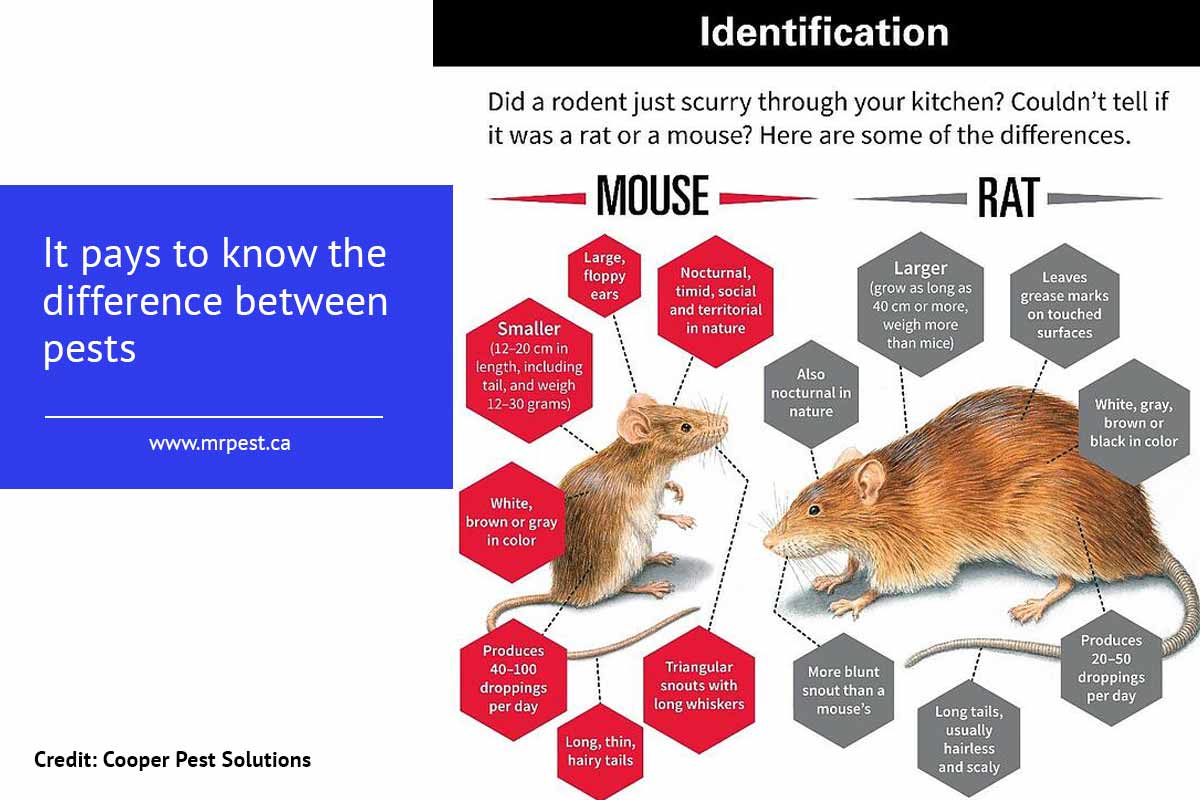
- Mistaken identity – Part of a pest control technician’s job is being able to identify the different pests infesting the house. One glaring risk associated with DIY pest control is that it’s easy for homeowners to misidentify pests. Many pests look similar at first glance (e.g. termite swarmers and flying ants) or leave similar signs that might confuse a layperson. There are also specific distinctions between different species (e.g. in rats) that can affect your efforts. One mistake DIY methods make is believing in universal pest control. Every species is unique in its behaviour, and effective pest control must be tailored to each pest’s specific qualities.
- Underestimating the infestation – When you see one pest, it’s almost certain that there are more lurking around somewhere. A good rule of thumb is that it’s not the pests you can see that are the biggest problem, but the ones you can’t. One primary reason that DIY pest control fails is due to underestimating the scope of the infestation. Pests are also smarter than many homeowners give them credit for. For example, many pests (e.g. rodents and insects) have great senses of taste and smell, which they use to navigate and communicate. Sometimes traps and pesticides fail to work because the pests can smell something fishy and avoid them.
- Treating the symptoms – When you take care of pest problems yourself, it’s usually in response to seeing a pest in the house. For example, you find ants around the house and decide to spray them. It sounds sensible; after all, once you’ve killed them, the problem should be solved.
However, dealing with an infestation requires that you target the problem at its source. What professional pest control does is set traps near the main nest and seal any holes that can let pests in. A good understanding of pest behaviour is key to understanding where to target to deal with the infestation at its root. Another integral part of solving the problem is knowing how the outbreak started in the first place. Pest control services can evaluate your home and identify trouble to advise you on how to prevent another infestation in the future.
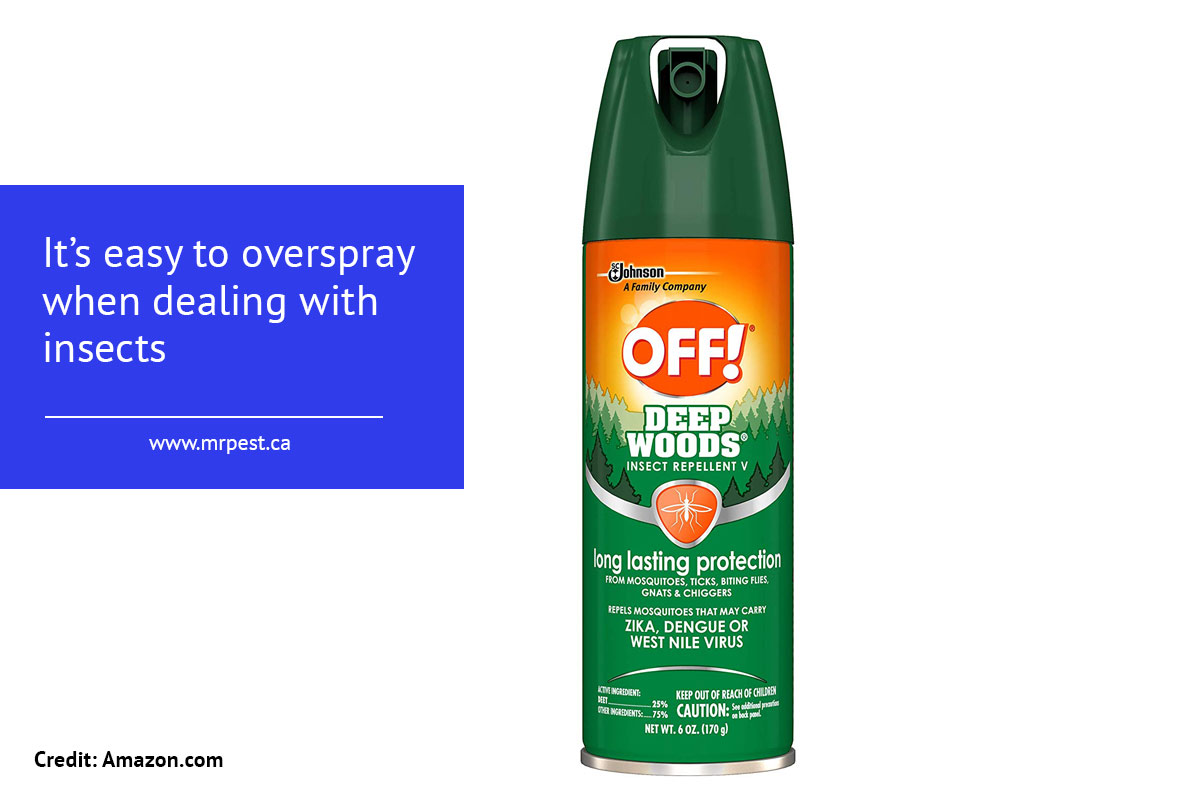
- Human error – Everyone makes mistakes, which are much more likely to happen when you don’t know what you’re doing. For example, one common strategy among homeowners is spraying everything (e.g. spraying insecticide when you see plenty of bugs). It sounds like a good idea at first, until the insects start to scatter. When they scatter, bugs spread out over the area making it harder to completely remove them. Their original nest may also remains intact, meaning the insects will eventually return.
Using over-the-counter pesticides willy-nilly can harm the environment and your family. Give the pros a call for a more responsible and precise approach to removing those pesky pests.
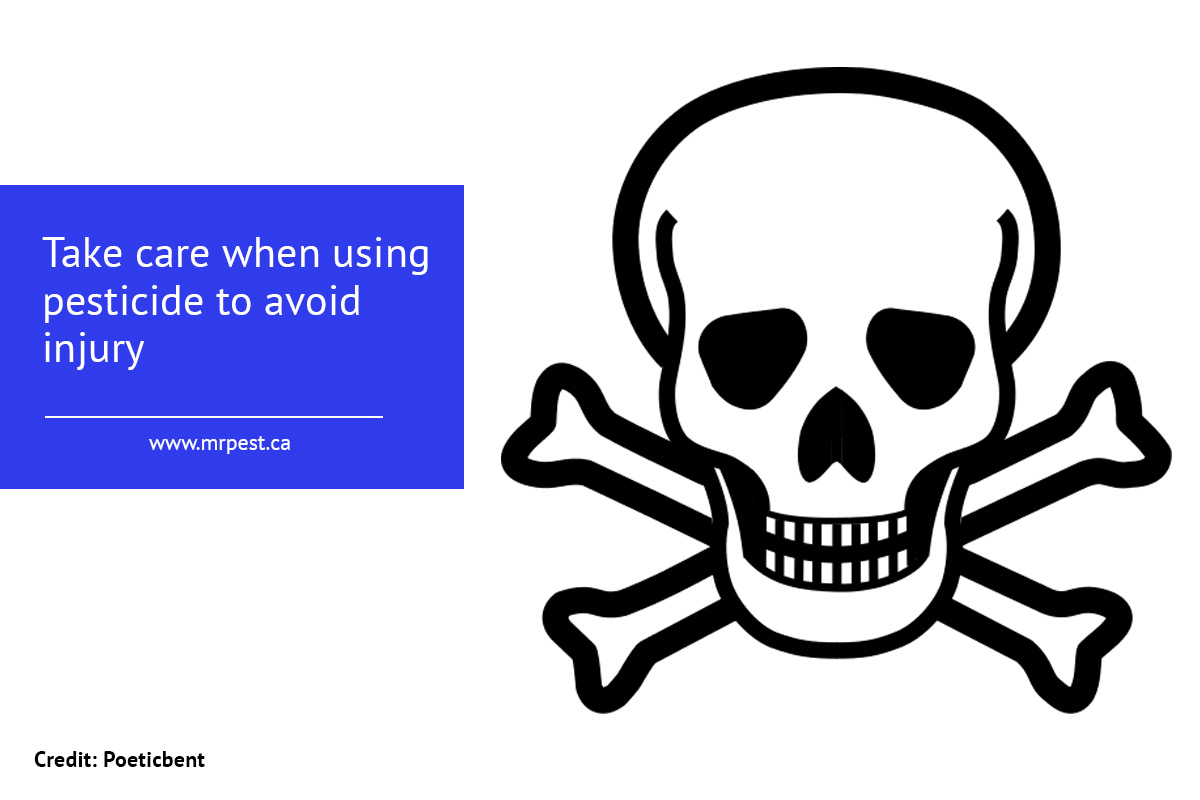
- Risk of injury – Pesticides are considered dangerous substances, hence the skull and crossbones symbol you may find on many cans. Over-the-counter pesticides may not be as effective as the ones professionals use, but they can still be dangerous, especially when misused. Improper use of pesticides can cause harm to members of your family, particularly the four-legged ones.
Taking care of pests yourself also exposes you to risk of injury. For example, taking on wasp and bee control on your own runs the risk of stings and other hurts. Professional pest control technicians know how to remove dangerous pests without exposing themselves or others to danger. Count on them to take care of your pest problems and avoid the risk of injury.
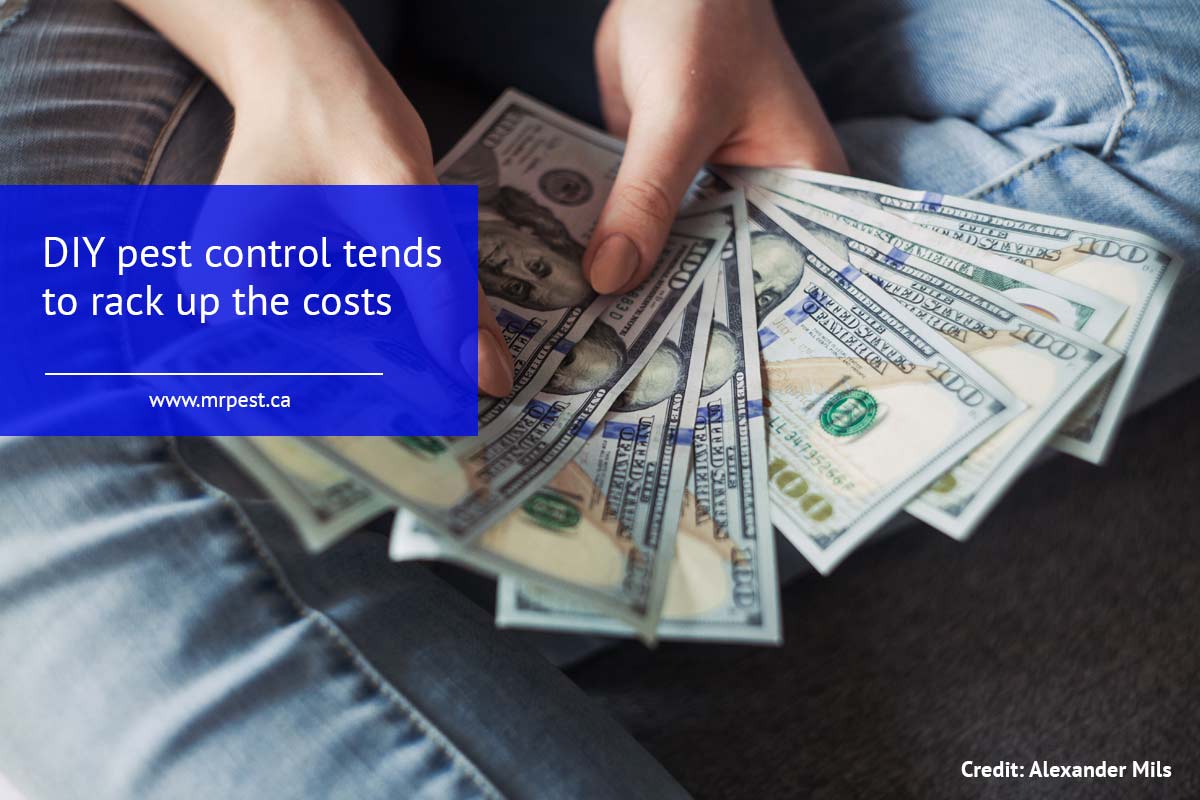
- Extra cost – One of the most important motives behind DIY pest control is saving money. At first glance, it sounds like you can deal with a pest infestation on your own, relieving you of the need to pay for pros to handle the work for you. However, the truth is that fixing the problem yourself can significantly increase your expenses. Many homeowners who resort to DIY methods tend to keep trying when the first attempts fail to bring about lasting results. This can create a cycle of DIY attempts, with homeowners trying and buying new methods, all with the same result. Another thing to plan for is the possibility of damage to the home in the course of removing pests. All of these factors can make DIY pest control

When it comes to quality pest control, it’s best to leave it to the pros. At Mr. Pest Control, we offer quality pest control services for a host of pests. Whether it’s raccoons, rodents, or insects, our team is ready to provide effective wildlife control to keep pests out of your home. Give us a call at (705) 739-7378 (Barrie, Midland, and Simcoe) or (705) 326-3377 (Orillia), or visit our contact page to get in touch with us. Let us help make your home a safe, pest-free place.

